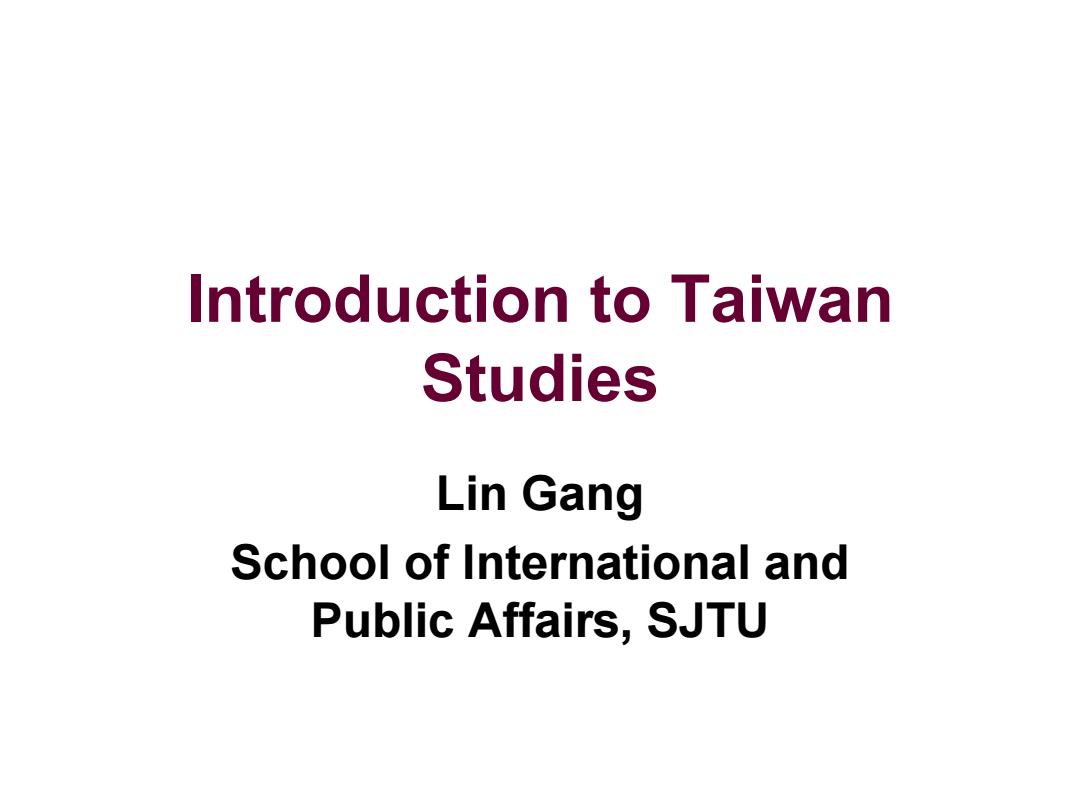
Introduction to Taiwan Studies Lin Gang School of International and Public Affairs,SJTU
Introduction to Taiwan Studies Lin Gang School of International and Public Affairs, SJTU
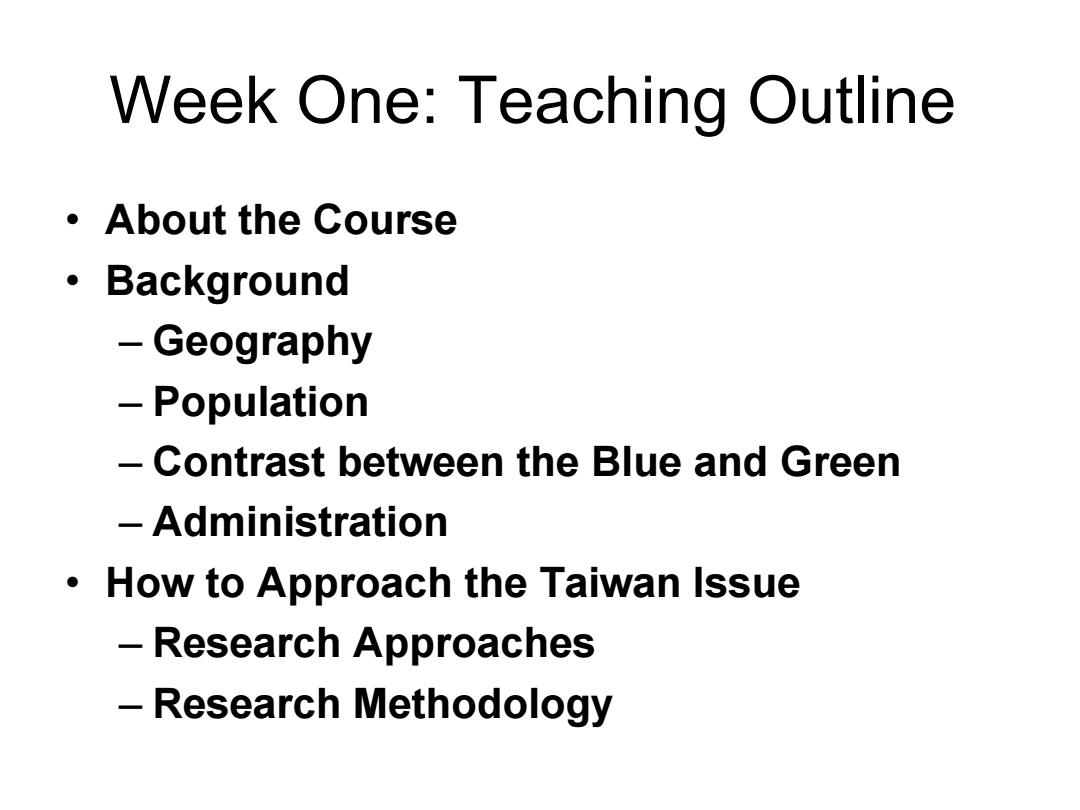
Week One:Teaching Outline ·About the Course ·Background Geography Population -Contrast between the Blue and Green -Administration How to approach the Taiwan Issue Research Approaches Research Methodology
Week One: Teaching Outline • About the Course • Background – Geography – Population – Contrast between the Blue and Green – Administration • How to Approach the Taiwan Issue – Research Approaches – Research Methodology
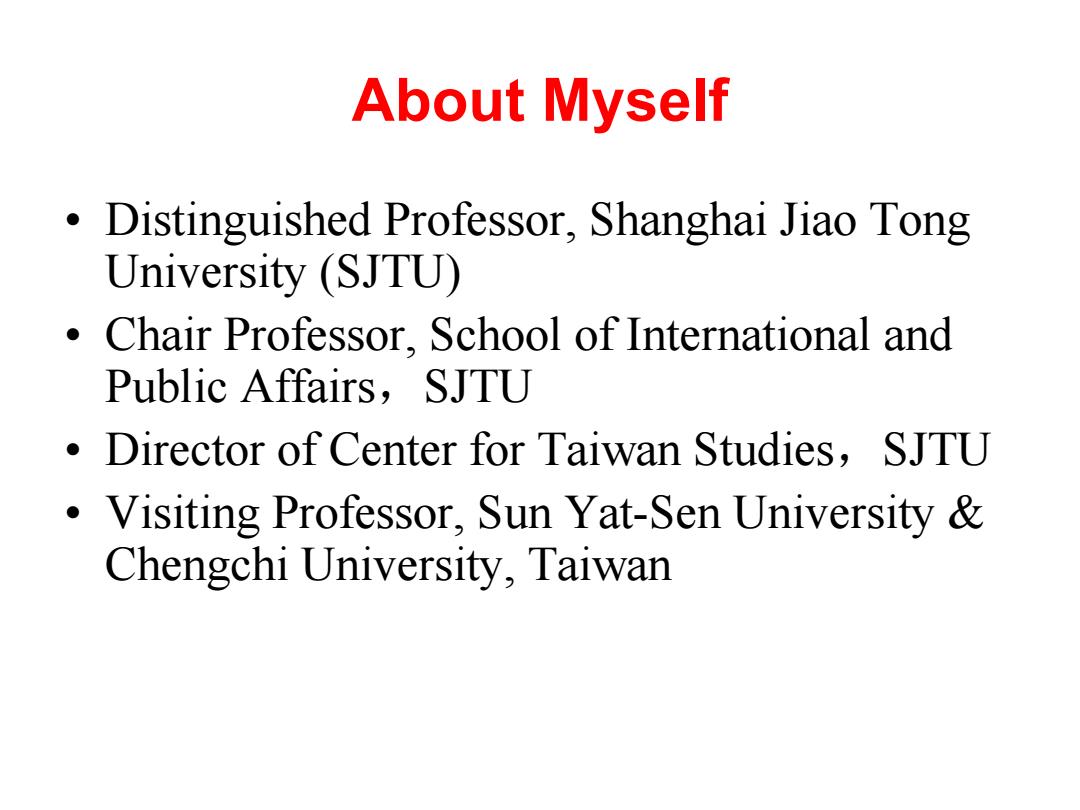
About Myself Distinguished Professor,Shanghai Jiao Tong University (SJTU) Chair Professor.School of International and Public Affairs,SJTU Director of Center for Taiwan Studies,SJTU Visiting Professor,Sun Yat-Sen University Chengchi University,Taiwan
About Myself • Distinguished Professor, Shanghai Jiao Tong University (SJTU) • Chair Professor, School of International and Public Affairs,SJTU • Director of Center for Taiwan Studies,SJTU • Visiting Professor, Sun Yat-Sen University & Chengchi University, Taiwan
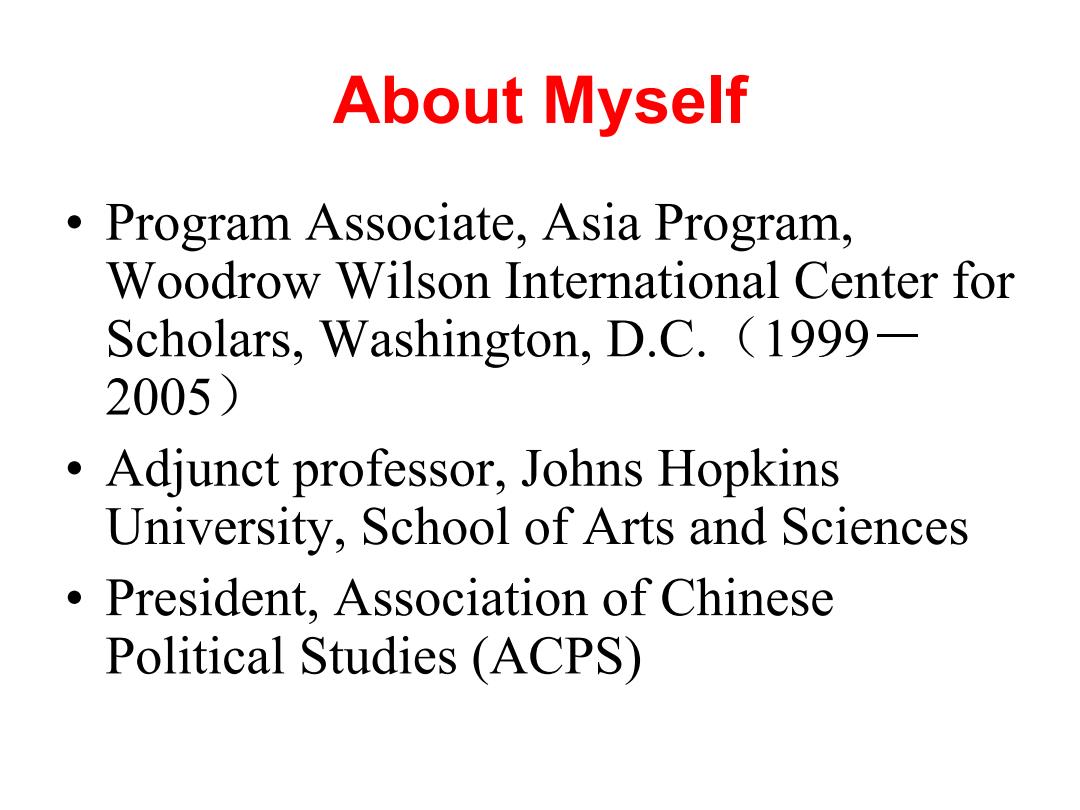
About Myself Program Associate,Asia Program, Woodrow Wilson International Center for Scholars,Washington,D.C.(1999- 2005) Adjunct professor,Johns Hopkins University,School of Arts and Sciences President.Association of Chinese Political Studies (ACPS)
About Myself • Program Associate, Asia Program, Woodrow Wilson International Center for Scholars, Washington, D.C.(1999- 2005) • Adjunct professor, Johns Hopkins University, School of Arts and Sciences • President, Association of Chinese Political Studies (ACPS)
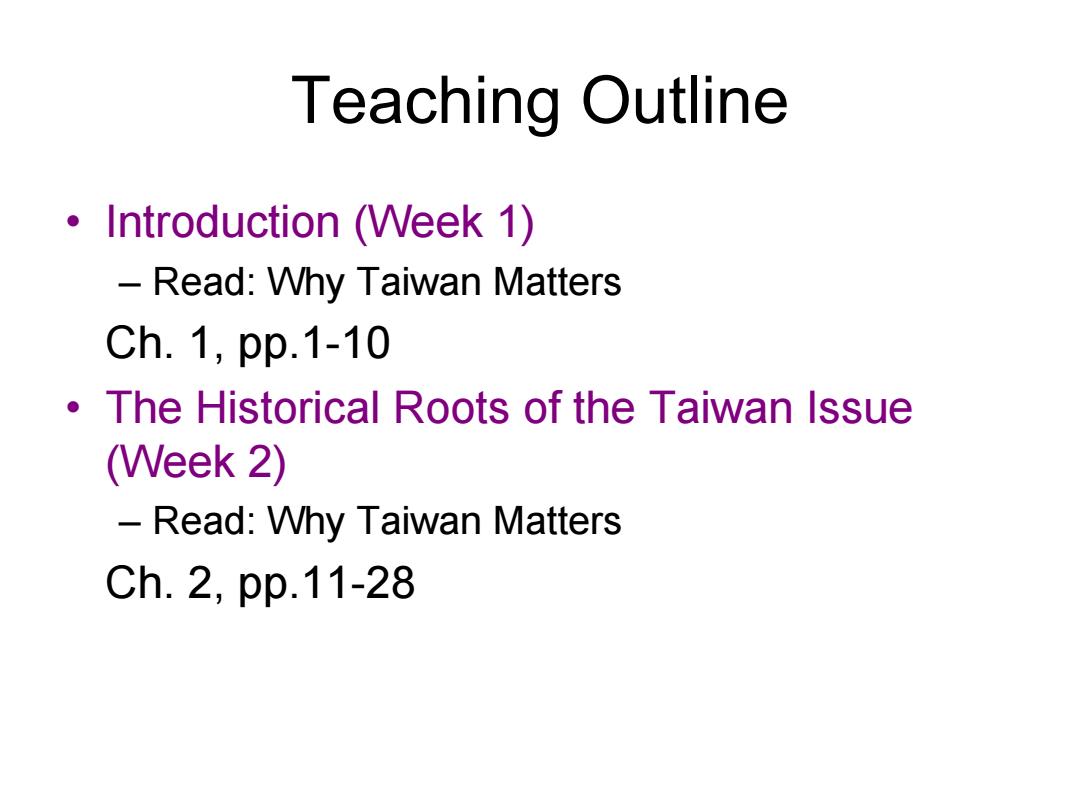
Teaching Outline Introduction (Week 1) Read:Why Taiwan Matters Ch.1,pp.1-10 The Historical Roots of the taiwan Issue (Week 2) Read:Why Taiwan Matters Ch.2,pp.11-28
Teaching Outline • Introduction (Week 1) – Read: Why Taiwan Matters Ch. 1, pp.1-10 • The Historical Roots of the Taiwan Issue (Week 2) – Read: Why Taiwan Matters Ch. 2, pp.11-28
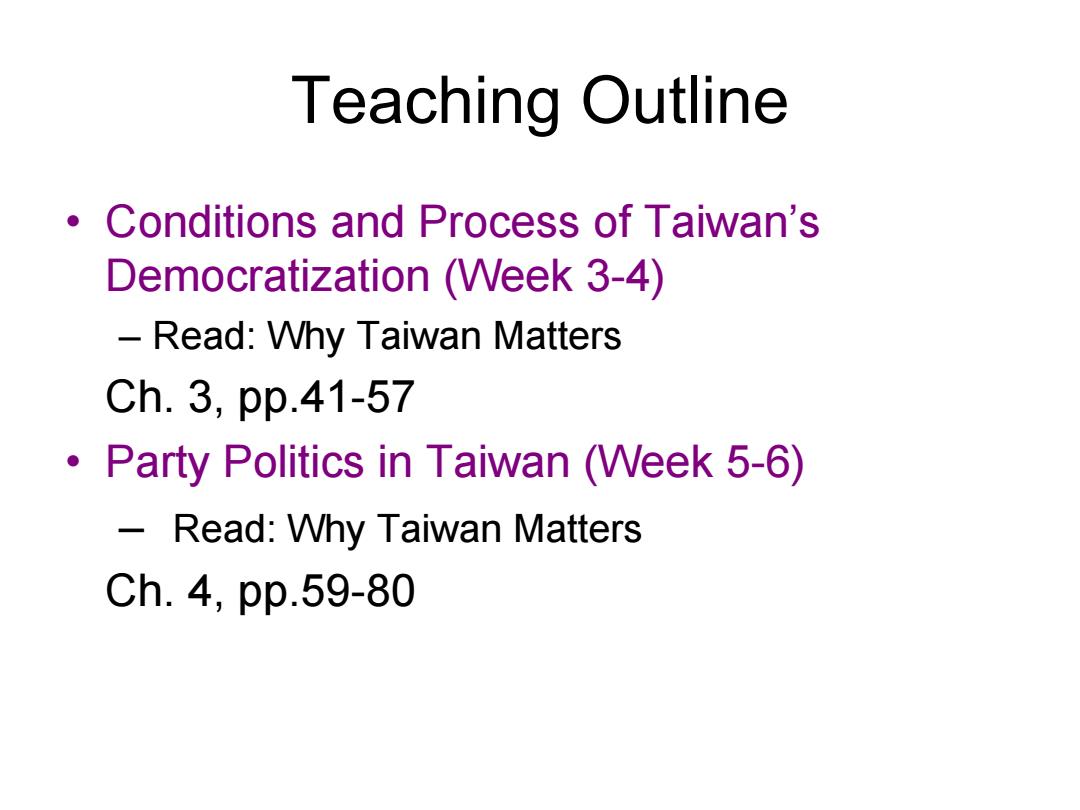
Teaching Outline Conditions and Process of Taiwan's Democratization (Week 3-4) -Read:Why Taiwan Matters Ch.3,pp.41-57 Party Politics in Taiwan (Week 5-6) Read:Why Taiwan Matters Ch.4,pp.59-80
Teaching Outline • Conditions and Process of Taiwan’s Democratization (Week 3-4) – Read: Why Taiwan Matters Ch. 3, pp.41-57 • Party Politics in Taiwan (Week 5-6) – Read: Why Taiwan Matters Ch. 4, pp.59-80
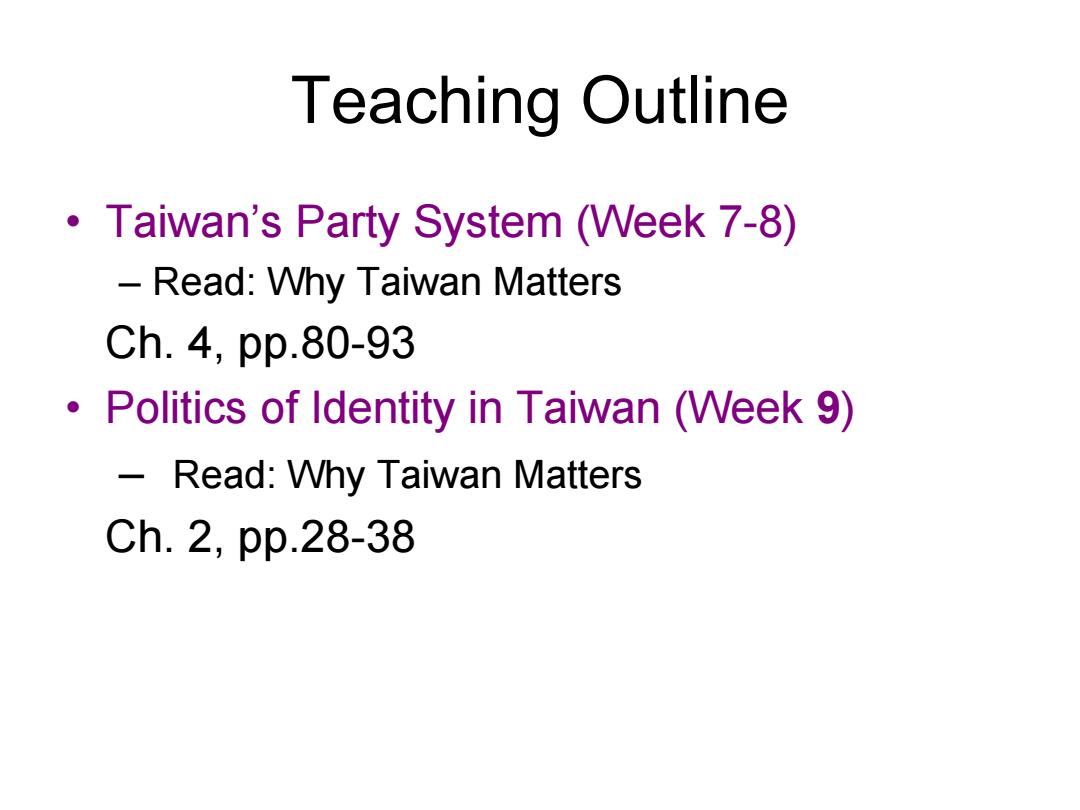
Teaching Outline Taiwan's Party System (Week 7-8) Read:Why Taiwan Matters Ch.4,pp.80-93 Politics of Identity in Taiwan (Week 9) Read:Why Taiwan Matters Ch.2,pp.28-38
Teaching Outline • Taiwan’s Party System (Week 7-8) – Read: Why Taiwan Matters Ch. 4, pp.80-93 • Politics of Identity in Taiwan (Week 9) – Read: Why Taiwan Matters Ch. 2, pp.28-38
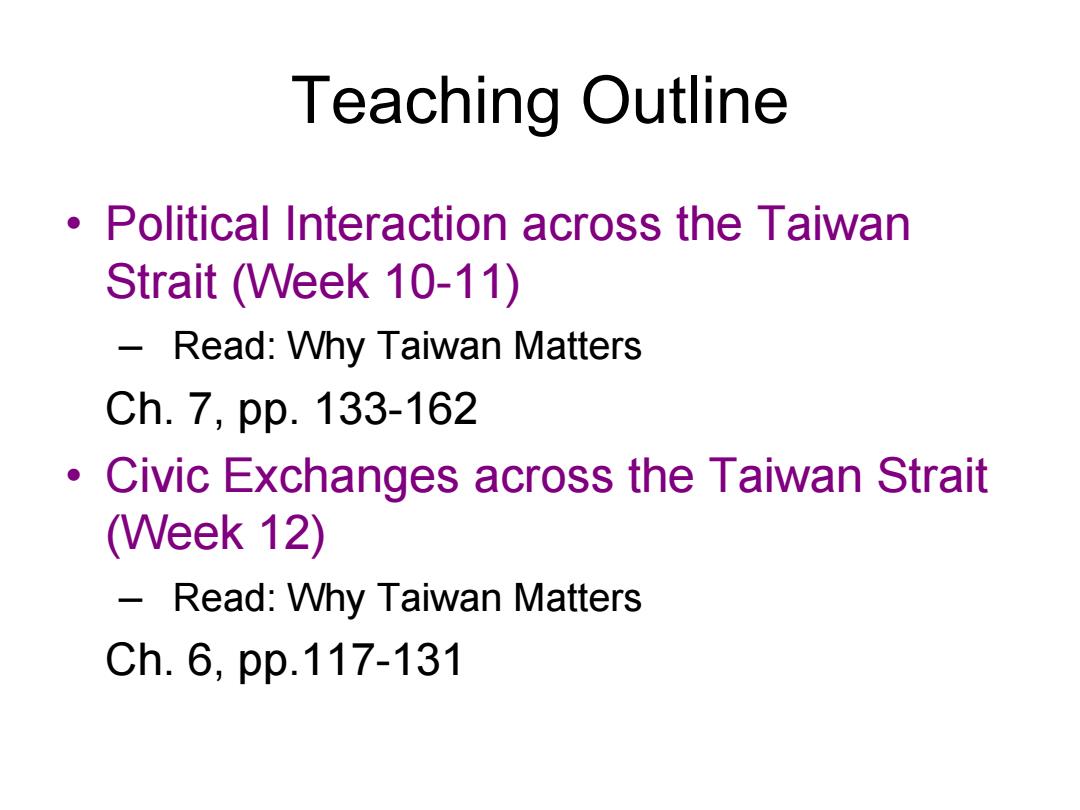
Teaching Outline Political Interaction across the Taiwan Strait (Week 10-11) Read:Why Taiwan Matters Ch.7,pp.133-162 ● Civic Exchanges across the Taiwan Strait (Week 12) Read:Why Taiwan Matters Ch.6,pp.117-131
Teaching Outline • Political Interaction across the Taiwan Strait (Week 10-11) – Read: Why Taiwan Matters Ch. 7, pp. 133-162 • Civic Exchanges across the Taiwan Strait (Week 12) – Read: Why Taiwan Matters Ch. 6, pp.117-131
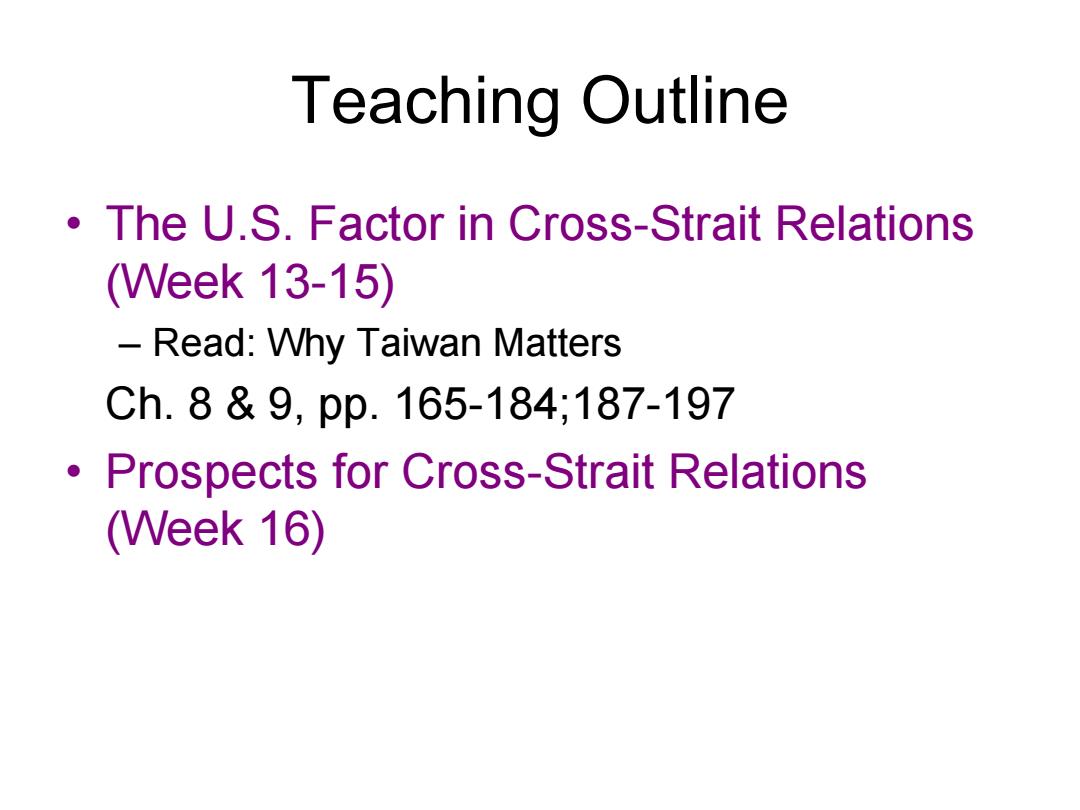
Teaching Outline The U.S.Factor in Cross-Strait Relations (Week13-15) Read:Why Taiwan Matters Ch.8&9,pp.165-184;187-197 Prospects for Cross-Strait Relations (Week 16)
Teaching Outline • The U.S. Factor in Cross-Strait Relations (Week 13-15) – Read: Why Taiwan Matters Ch. 8 & 9, pp. 165-184;187-197 • Prospects for Cross-Strait Relations (Week 16)
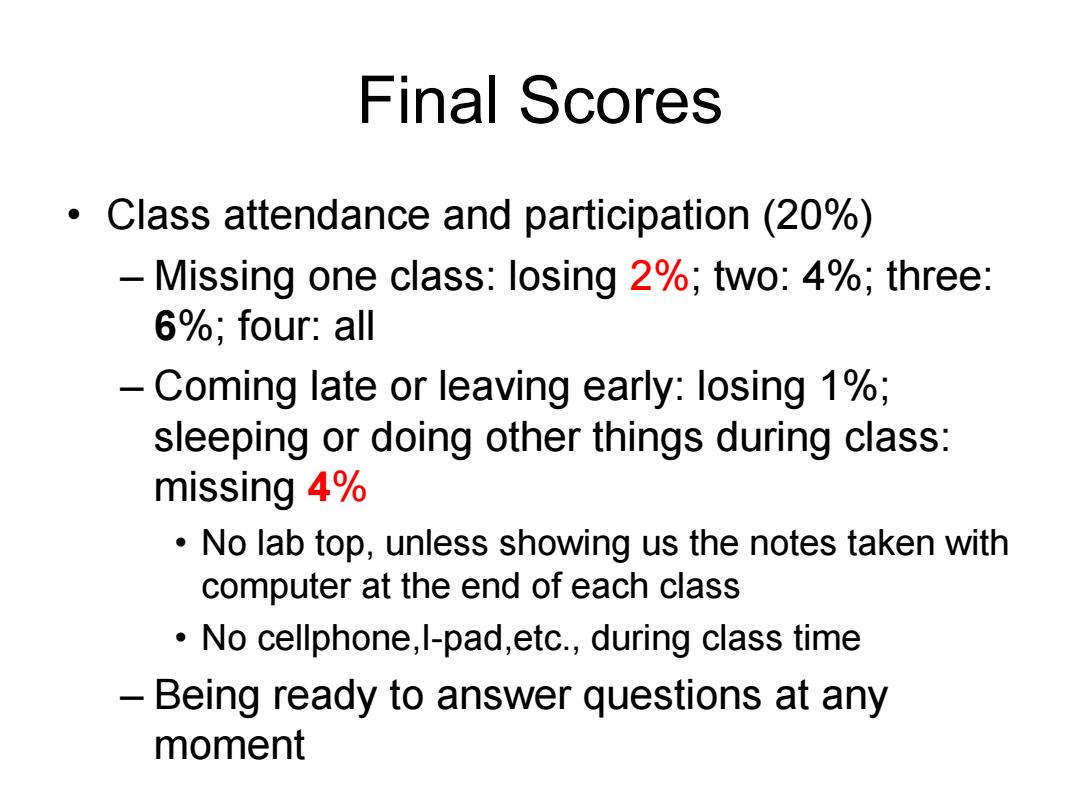
Final Scores Class attendance and participation (20%) Missing one class:losing 2%;two:4%;three: 6%;four:all -Coming late or leaving early:losing 1%; sleeping or doing other things during class: missing 4% No lab top,unless showing us the notes taken with computer at the end of each class No cellphone,l-pad,etc.,during class time Being ready to answer questions at any moment
Final Scores • Class attendance and participation (20%) – Missing one class: losing 2%; two: 4%; three: 6%; four: all – Coming late or leaving early: losing 1%; sleeping or doing other things during class: missing 4% • No lab top, unless showing us the notes taken with computer at the end of each class • No cellphone,I-pad,etc., during class time – Being ready to answer questions at any moment